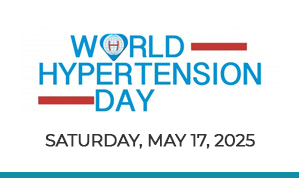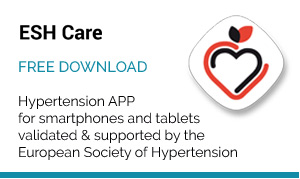ESH-Online Audio News
A popular diuretic has lost favour with one of New York’s top hypertension experts. Prof. Messerli made a cogent argument during a Late-Breaker Session at the Milan conference for never using hydrochlorothiazide as initial therapy for hypertension.
Milan, Italy – Hydrochlorothiazide is markedly inferior to all other antihypertension medicines when used as initial therapy. That’s according to Franz H. Messerli, MD, Director of the Hypertension Programme in the Division of Cardiology at St Luke’s Roosevelt Hospital, and Professor of Medicine at Columbia University in New York.
Although he had been using hydrochlorothiazide extensively in his practice for 30 years, and – until recently – regarded it as a “fairly efficacious antihypertensive drug”, when he came across a publication showing the it lowered blood pressure by only 5 mmHg over 4 mmHg (assessed by 24 hour ambulatory blood pressure monitoring) he began to revise his thoughts.
After making a search and finding around 20 studies comparing hydrochlorothiazide monotherapy with all the main categories of antihypertensive agents in monotherapy he decided firmly against using it as initial therapy from then on.
Dr Messerli restricted his search to studies where 24 hour ambulatory monitoring was used, which he regards as “the most accurate and objective way to assess antihypertensive efficacy”.
“In a nutshell,” he said in an interview after his talk in Milan, “hydrochlorothiazide was inferior in antihypertensive efficacy to ACE-inhibitors, calcium antagonists, angiotensin receptor blockers, and eveninferior to beta blockers – all the major classes.” And the data he showed in Milan revealed that this was by a “substantial” margin: up to 6 mmHg systolic and three or four mmHg diastolic.
When Dr Messerli was asked about comparisons in terms of toxicity, he still had no good news for hydrochlorothiazide: “If you go to higher doses of hydrochlorothiazide – 50 milligrams – the efficacy becomes equal to other drugs: but at that level you have serious adverse effects, like hypokalemia, increased insulin resistance and glucose intolerance,” he explained. “At that dose nobody would prescribe hydrochlorothiazide any more!” he said.
He noted that his critique was confined to hydrochlorothiazide and not other thiazide-type diuretics such as indapamide, which he thought should continue to be used in monotherapy or in combination.
When Dr Messerli was asked what message he would like doctors to take home after his bombardment of collected data, he said: “This implies, absolutely straightforward, that you should not use hydrochlorothiazide as initial therapy in hypertension!”
His personal preference, he said, was to start with an agent other than a diuretic: “Personally I would rather start on a CCB, an ARB, or an ACE inhibitor; and then I would add on another drug before ever using hydrochlorothiazide.”





